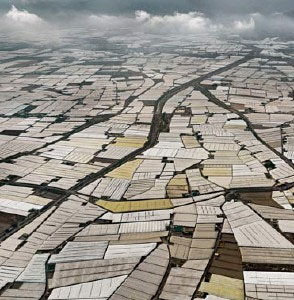(this is a concept for a part of a longer collaborative work)
The human quest for love, improving our lives and finding understanding, pursue human values that are not inherent in nature. Their pursuit requires reliable knowledge of nature, though, and the kind of values exhibited in her designs of natural systems. So ethics for using the earth is partly a matter of learning to notice the way nature makes complex relationships that work beautifully. It’s also a matter of observing how our having changed the earth alters our own ability to live by our own values.

Nature offers myriad examples of how complex communities can live together, demonstrating many kinds of competition, collaboration, conflict and tolerance, etc., that do or don’t work. They offer something like a set of natural ethical principles for “what works”. In nature all living systems need to produce a profit of surplus energy, for example.
So adding to the tasks of an environmental system like an economy, until its energy costs keep it from making an energy profit, has the effect of making it go physically bankrupt. That amounts to making it unethical, for your own life support system for example, to remain ignorant of the consequence of driving its physical energy budget dangerously toward insolvency.
All environmental systems are complex economies for energy use. They all also begin with growth as a period of finding ever more resources to take control of. For our economy growth first gave us ever more plentiful energy and food for improving the quality of life, and without any real conflict with nature. Now that growth took us from “small” to “big in the process, we now find smaller amounts of new resources to control and are being constantly surprise by unexpected emerging environmental conflicts.
We’re also finding another very disturbing fact of life, that our economy is institutionally very unprepared for this change in the earth’s response to us. We find we designed, and still operate, our economy for finding ever more rapid expanding resources without conflicts, the exact opposite of what we now find.
How unprepared our society is for change is seen in how little our values have to say about the value of changing the earth, and our ‘prospering’ now by shortchanging our own future. As human productivity and population have grown by searching the earth for resources and human ingenuity for new techniques, the effort to improve our liveshas proven to be all too successful and pushing our life support system toward failure. Now we have expanded the scale of our impacts to be rapidly altering the biogeochemistry and biogeography of the planet itself.
It both challenges our current survival and permanently changing the workings of the earth. It ushered in a little understood new geological era, the human changed earth : the Anthropocene. Barring the disappearance of man, the earth will have significantly fewer species, sharply reduced areas that are ecologically productive, a different climate, depleted resources that only high technology can extract, with most human uses of the earth maximized to near a point of danger.
That contrasts with the relatively placid prior ten thousand years, during which human language and all past human civilizations developed, the Holocene. Now we suddenly find we’ve made a world unlike the one our entire cultural evolution trained us to live in. It’s so different in fact that we noticeably lack an ethical guidance system for it. As things changed we have apparently been asking the wrong questions and in a word, we are lost. Finding how we lost our way and the new questions that would guide us uniquely challenges us.
We need to question our own ideals as well as our own knowledge and ethical values. We need to search for the lost insights of people whose teachings were rejected as well as to discover new insights. Emerging scientific perspectives aiming to foster that shift of attention are the study of natural systems, ecological economics and complexity theory.
The deep problem has clearly something to do with our being “over-productive”. So perhaps some of our lost knowledge is hidden in the scientific, social and ethical cultures that were discarded to make way for “progress”.
Searching human experience for what we’re now so painfully missing may also offer rich new insights about the human/nature relationship, providing an understanding of who we are, where we came from, and where we may be going. These perspectives force us to question assumptions that are especially deep in Western culture with regard to our unjustified sense of separation from and superiority over other cultures and nature.
From this perspective we hold these truths to be self-evident: 1) that humans are members of, not masters over, life’s commonwealth; 2) that respect for and care of life’s household is a fundamental duty of all persons; and 3) that this duty can be understood as requiring a change of view, to learning to be observant to appreciate the rich complexity of nature’s working parts hidden from view. An ethos—an over-arching understanding of a right relationship with life and the world comes into view. Ethics and ethos alike reground our understanding of how we ought to assess and redirect the global economy, finance; and indeed civilization itself, as we enter the stormy Anthropocene.
